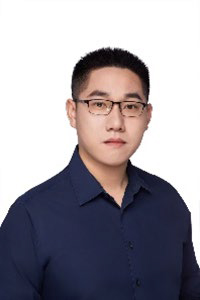A multi-modal LLM-augmented deep reinforcement learning framework for adaptive traffic signal control
A multi-modal LLM-augmented deep reinforcement learning framework for adaptive traffic signal control
Urban traffic congestion continues to pose severe challenges for sustainable mobility, and adaptive traffic signal control is widely recognised as a key solution. In this talk that will also be presented in NeurIPS-2025, I will present a series of advances that build toward a multi-modal LLM-augmented deep reinforcement learning framework for intelligent signal control. I first address the challenge of generalisation in DRL-based controllers, which often struggle to transfer across intersections with differing geometries (such as three-way versus four-way layouts) and varying traffic flow patterns. I then focus on the limitation of RL in handling rare or safety-critical scenarios, such as emergency vehicles or unexpected pedestrian movements, and propose an AI-agent paradigm in which RL governs routine traffic conditions while the agent leverages additional reasoning capabilities for exceptional cases. Finally, I introduce VLMLight, a novel framework that mitigates the information loss inherent in text-only scene representations by integrating visual inputs of intersections with multi-modal LLM reasoning, unifying image-based perception and language-based decision-making to achieve more adaptive and context-aware traffic control. Taken together, these efforts highlight a path toward generalist, resilient, and human-aligned traffic management systems capable of addressing the complexities of real-world urban mobility.
Speaker’s profile

Maonan Wang is a PhD candidate in Computer and Information Engineering at The Chinese University of Hong Kong, Shenzhen. He received his BE and ME degrees from Beijing University of Posts and Telecommunications in 2018 and 2021, respectively. His research focuses on intelligent transportation systems and connected vehicle technologies. He has published multiple papers in venues such as NeurIPS, IEEE Transactions on Intelligent Transportation Systems (T-ITS), and IEEE Transactions on Vehicular Technology (T-VT). Beyond academia, he has worked with Didi Chuxing, SenseTime, Shanghai AI Laboratory, and Nokia Bell Labs, and has achieved top rankings in AI competitions, including first and second prizes in the Pazhou Algorithm Competition and Tencent Kaiwu Global AI Competition. He is also the lead developer of TransSimHub, a traffic simulation platform that has been widely adopted by research and industry partners.
